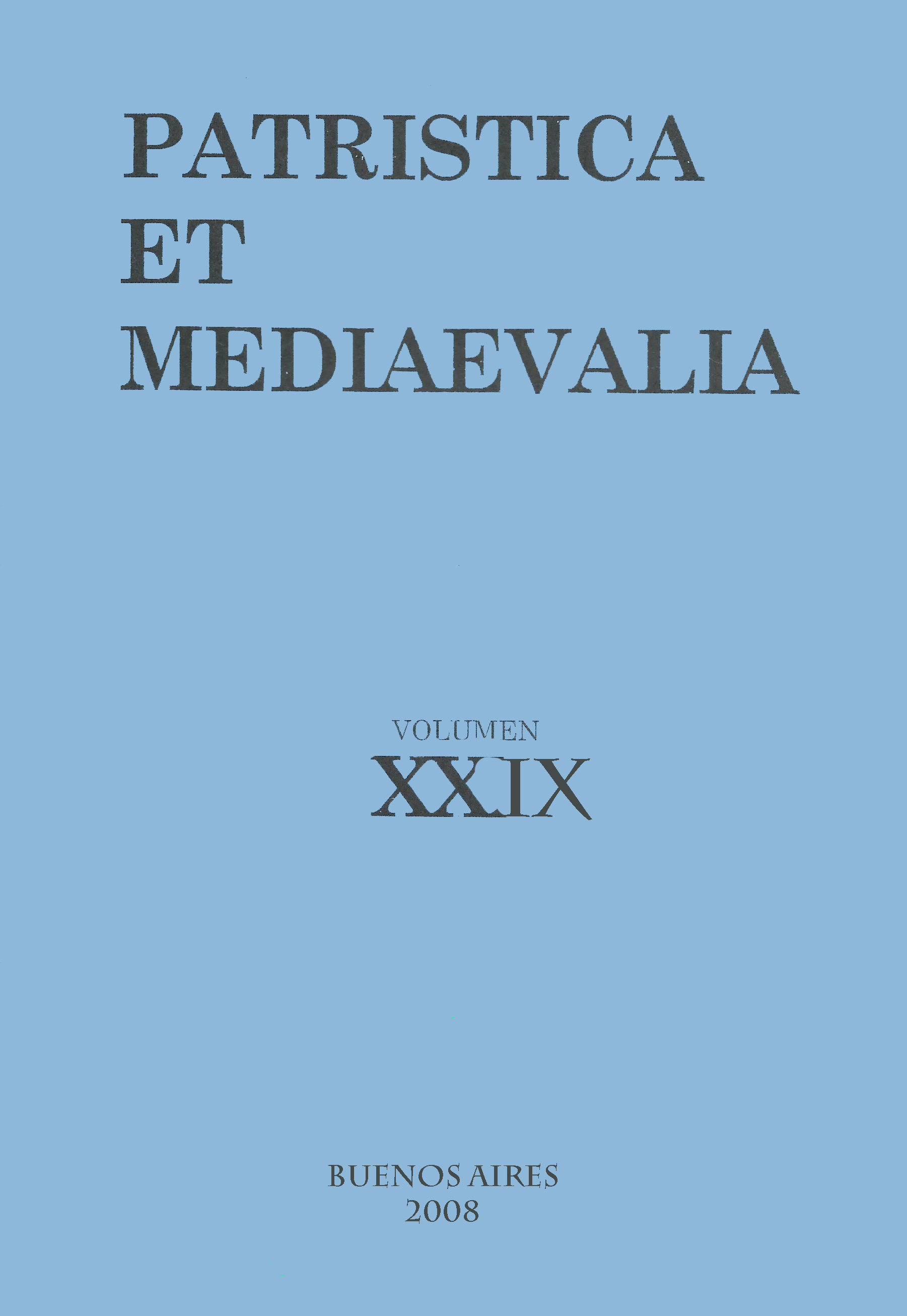Thomas Aquinas against Avicenna: The Origin of the Forms and the Subsistence of the Singular Substance
Abstract
Avicenna's influence on Thomas Aquinas's work is undeniable. Some of his fundamental metaphysical notions are based on Avicennian formulas, which does not prevent him from criticizing severely diverse aspects of the Avicennian doctrine of creation. In several moments of his work, Thomas criticizes, in particular, Avicenna's doctrine according to which the forms of the entities of the sublunary world flow from a superior Intelligence (the dator formarum). Thomas attributes this doctrine to the disability to explain the origin of forms other than by creation. The true solution presupposes, according to Thomas, analyze the generation of composite substances following the Aristotelian principles (Met. VII, 8): what is properly generated is what properly exists, that is to say, not the form, but the compound. Thomas applies this solution to the polemic about the capacity of natural bodies to act – in other terms about the efficiency of secondary causes– and to the question whether creation is mixed within the works of nature – that is to say, whether any created nature at all can create–. In synthesizing the Aristotelian ontology of the primary substance and the creationist metaphysics, Thomas has betted for the subsistence of concrete beings in the world of natural experience.Downloads
References
Anawati, G. C. (1974). Saint Thomas d’Aquin et la Métaphysique d’avicenna. En Maurer, A. A. et al. (eds.). St. Thomas Aquinas 1274-1974: Commemorative Studies. Toronto: Pontifical Institute of Mediaeval Studies, 449-465.
Castello Dubra, J. A. (2006). Tomás de Aquino y las condiciones de posibilidad de una ciencia natural. Patristica et Mediaevalia, 27, 73-86.
Colish, M. L. (1975). Avicenna’s Theory of Efficient Causation and Its Influence on St. Thomas Aquinas. En Tommaso d’Aquino new duo sétimo centenario. Atti del Congreso Internazionale (Roma-Napoli, 17-24 aprile 1974). Napoli: Edizioni Domenicane Italiane, 296-306.
Forest, A. (1931). La structure métaphysique du concret selon Saint Thomas d’Equin. Vrin: Paris.
Hankey, W. (2006). Ab uno simplici non est nisi unum: The Place of Natural and Necessary Emanation in Aquinas’ Doctrine of Creation. En Otten, W., Hannam, W. & Treschow, M. (eds.). Divine Creation in Ancient, Medieval, and Early Modern Thought: Essays Presented to the Rev’d Dr. Robert D. Crouse. Leiden: Brill, 309-333.
1. The authors who publish in this magazine accept the following conditions:
-
They retain the copyright and grant to the magazine the right of the first publication, with the work registered under the Attribution-ShareAlike 4.0 International License that allows third parties to use what is published as long as they mention the authorship of the work and the first publication in this magazine.
-
They can make other independent and additional contractual agreements for the non-exclusive distribution of the version of the article published in this magazine (eg. include it in an institutional repository or publish it in a book) provided that they clearly indicate that the work was first published in this journal.
-
They are allowed and recommended to publish their work on the Internet (for example on institutional or personal pages).
2. AutoArchive Conditions. Authors are allowed and encouraged to distribute post-print electronic versions of their manuscripts because it promotes their circulation, a possible increase of quotation and a major reach among the Academic community. Color RoMEO: blue.













